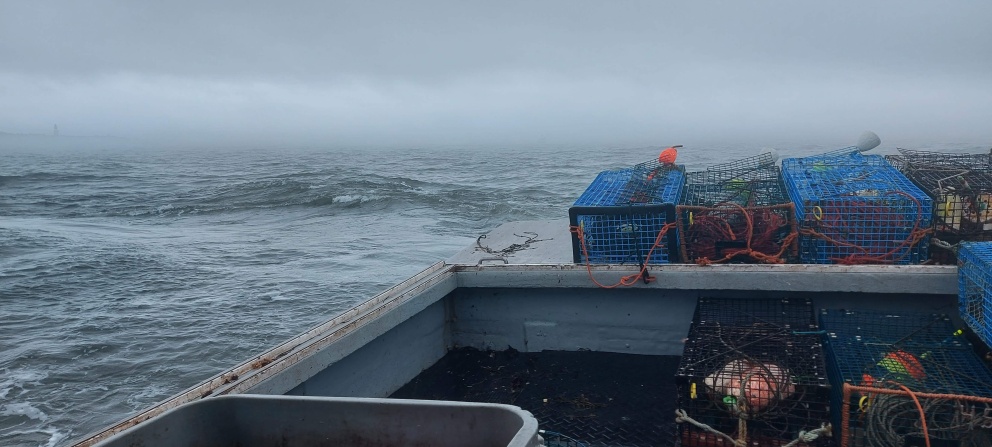A sea of change

As the number of lobster landings decreases in the Bay of Fundy, fishers have to travel farther offshore and likely increase operational costs, time and effort searching for this important crustacean. I captured this photo while sampling for my MSc project; it shows a lobster fishing boat leaving the shore for another workday.
In American lobster, the success to reach the adult phase largely depends on the conditions experienced by the planktonic larvae, which in turn is affected by hatch time. Environmental factors such as the water temperature can speed up the hatching process. If the eggs hatch before their prey, larvae will have a hard time finding food, resulting in low survival of larval recruits. As the ocean gets warmer due to climate change, temporal variations in hatch time can affect the number of recruits, thus impacting future fisheries.
To help fishers and lobsters, my MSc research focuses on validating two temperature-dependent functions on lobster embryo development, predicting when hatch will occur and checking if the predicted period matches the real presence of lobster larvae in the water; if it does, we can use these functions to accurately monitor hatch of lobsters in the Southwest Bay of Fundy.